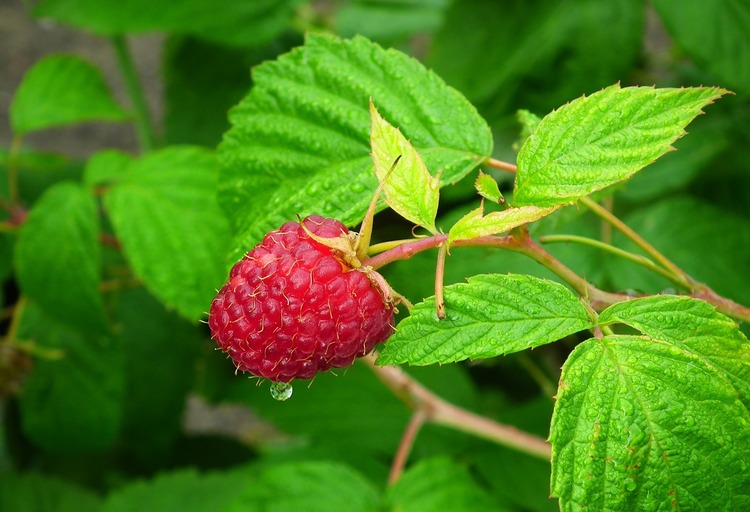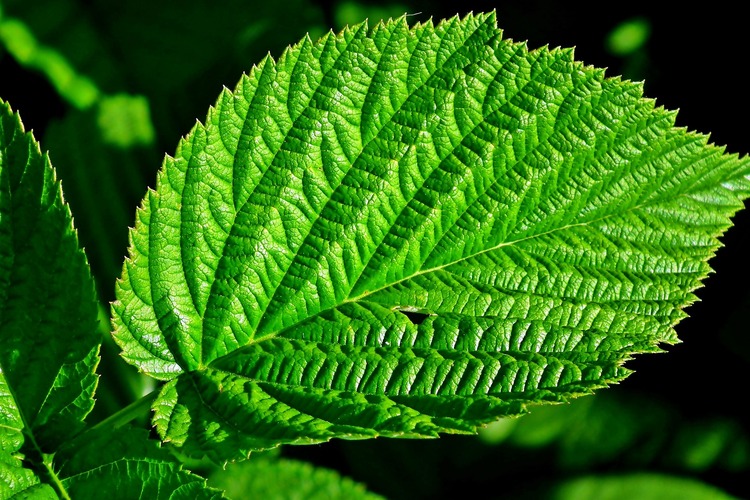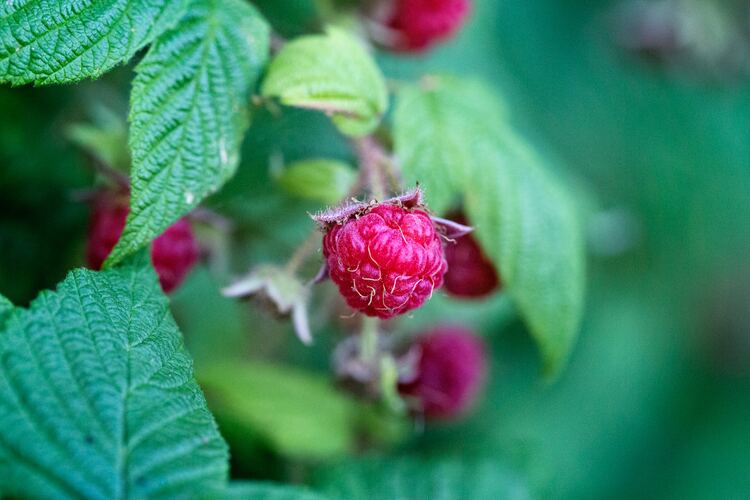What does raspberry leaf tea taste like? Wait, did you even know about the existence of this tea? Well, raspberry leaf tea is an herbal tea made from the leaves of the raspberry plant. It has a flavor profile that can be described as fruity, earthy, and slightly bitter. Some people also detect a tartness similar to raspberries.
And, if we piqued your curiosity, keep reading to learn more about this tea and its many properties.
Please note: This article contains affiliate links, meaning I may earn a commission if you make a purchase by clicking a link. Of course, this comes at no extra cost to you and helps me keep offering readers solid information.

What is Raspberry Leaf Tea?
If you’re wondering what raspberry leaf tea is, it’s a type of herbal tea made from the leaves of the raspberry plant. The raspberry plant is native to Europe, but it is cultivated in many parts of the world today. The leaves of the raspberry plant have been used for centuries in traditional medicine and natural remedies.
Raspberry leaf tea is typically made by steeping dried raspberry leaves in hot water. It can be consumed plain or sweetened with honey or other natural sweeteners. You can find the leaves at most health food stores or online if you want to try it.
While raspberry leaf tea is generally considered safe for most people, it’s advisable to consult a healthcare professional before using it, especially if you have any underlying health conditions or are pregnant. They can provide personalized advice based on your specific circumstances.
What Does Raspberry Leaf Tea Taste Like?
Regarding the flavor profile of raspberry leaf tea, you should know a few things. Here is a breakdown of its flavor.
- Mildness: Raspberry leaf tea is not overly strong or overpowering in flavor. It has a gentle, delicate taste, often compared to a light green or black tea without bitterness.
- Earthy: The tea has an earthy quality, with herbal notes reminiscent of freshly cut grass or hay. This earthiness is characteristic of many herbal teas.
- Slight Astringency: Some people notice a mild astringency in raspberry leaf tea, which can give it a slightly dry or puckering sensation in the mouth. This astringency is usually not as strong as what you might find in black tea.
- Subtle Herbal Undertones: Depending on the source and preparation, raspberry leaf tea may have subtle herbal undertones, which can vary slightly. These herbal notes are often described as grassy or vegetal.
- Lack of Sweetness: Raspberry leaf tea is generally not sweet. You can add honey, lemon, or other sweeteners to taste if you prefer a sweeter flavor.
The flavor of raspberry leaf tea can also vary based on factors such as the growing conditions of the raspberry plant, the processing of the leaves, and the brewing time and temperature. Some people find the taste quite pleasant and soothing, while others may find it an acquired taste.

Raspberry Leaf Tea Blends
If you want to add some variety to your cup of raspberry leaf tea, you can try blending it with other herbs or flavors. Here are a few ideas to get you started:
- Raspberry and mint: Add a few fresh mint leaves for a refreshing and cooling flavor.
- Raspberry and lemon: Squeeze some lemon juice into your tea and add a slice of lemon for a citrusy twist.
- Raspberry and ginger: Grate fresh ginger into your tea for a spicy kick.
- Raspberry and chamomile: Mix in some chamomile flowers for a calming and soothing blend.
- Raspberry and honey: Add a drizzle of honey to your tea for a touch of sweetness.
You can also find pre-made raspberry leaf tea blends at your local grocery or health food store. Some popular blends include raspberry leaf and nettle, raspberry leaf and rosehip, and raspberry leaf and hibiscus.
Experiment with different blends to find your favorite combination. Remember that adding too many flavors can overpower the taste of raspberry leaves. Start with small amounts and adjust to your liking.
How to Prepare Raspberry Leaf Tea
To prepare raspberry leaf tea, follow these steps:
- Gather your ingredients: You will need dried raspberry leaves and water.
- Measure the leaves: Use 1 to 2 teaspoons of dried raspberry leaves per cup of water. Adjust the quantity according to your taste preference.
- Boil the water: Bring water to a boil in a kettle or a pot.
- Place the leaves in a teapot or mug: Put the measured raspberry leaves into a teapot or directly into a cup if you’re making a single serving.
- Pour the boiling water: Carefully pour the hot water over the raspberry leaves. Use approximately 1 cup of water per serving.
- Steep the tea: Let the leaves steep in the hot water for 5 to 10 minutes. This allows the flavors and beneficial compounds to infuse into the water.
- Strain the tea: If you use loose leaves in a teapot, strain the tea into cups using a fine-mesh strainer or a tea infuser. If you use a tea bag, remove the bag.
- Optional: Sweeten if desired: You can add natural sweeteners like honey, maple syrup, or stevia to enhance the flavor of the tea if desired.
- Serve and enjoy: Pour the raspberry leaf tea into cups and savor the flavors. You can drink it hot, let it cool, and enjoy it as iced tea.

Health Benefits
Drinking raspberry leaf tea offers many potential health benefits. Here are some of the ways that this tea can be beneficial for you:
- Minerals: Raspberry leaf tea is rich in magnesium, zinc, and iron. These minerals are essential for maintaining good health and can help prevent various health problems.
- Vitamins: This tea contains vitamins C, E, and A, which are all critical for maintaining a healthy immune system. These vitamins also help to protect your body against free radical damage.
- Antioxidants: Raspberry leaf tea is a rich source of antioxidants, which help to protect your body against damage from harmful free radicals. These antioxidants can help prevent various health problems, including cancer and heart disease.
- Aroma and Flavor: This tea has a unique aroma and fruity and earthy flavor. The tea has a pleasant, slightly sweet taste that is easy to drink.
- Nutrient-Dense: Raspberry leaf tea is a nutrient-dense beverage that can help to support overall health and well-being. It is also a good source of fiber, which can help to promote healthy digestion.
- Menstruation and Menstrual Cramps: This tea can help to ease menstrual cramps and reduce the discomfort associated with menstruation. It can also help to regulate the menstrual cycle and reduce heavy bleeding.
- Anti-Inflammatory: Raspberry leaf tea has anti-inflammatory properties that can help to reduce inflammation throughout the body. This can benefit a range of health problems, including arthritis, ulcers, and inflammatory bowel disease.
- Cancer Prevention: Raspberry leaf tea contains fragarine, a compound believed to have anti-cancer properties. While more research is needed in this area, drinking raspberry leaf tea may help to reduce the risk of certain types of cancer.
- Other Benefits: This tea may also be beneficial for weight management, reducing water retention, and promoting healthy skin.
Please Note: It’s essential to follow the recommended dosage and consult with a healthcare professional, mainly if you are pregnant or have any underlying health conditions, to ensure that raspberry leaf tea is safe and appropriate.

Top Recommendations
Plenty of raspberry leaf tea options exist on online retailers such as Amazon. Here are some of our favorite products.

Buddha Teas Organic Raspberry Leaf Tea

Traditional Medicinals Organic Raspberry Leaf Tea

The Republic of Tea Organic Raspberry Leaf Superherb Tea

I hope you have enjoyed the article and learned something new. Enjoy your tea!
To you, what does raspberry leaf tea taste like?
More About Floral Teas
What Does Rose Tea Taste Like?
What Does Rose Milk Tea Taste Like?
What Does Rosehip Tea Taste Like?
What Does Lavender Tea Taste Like?
What Does Lavender Milk Tea Taste Like?
What Does Hibiscus Tea Taste Like?
More About Tea
What Does Black Tea Taste Like?
What Does Green Tea Taste Like?
What Does White Tea Taste Like?